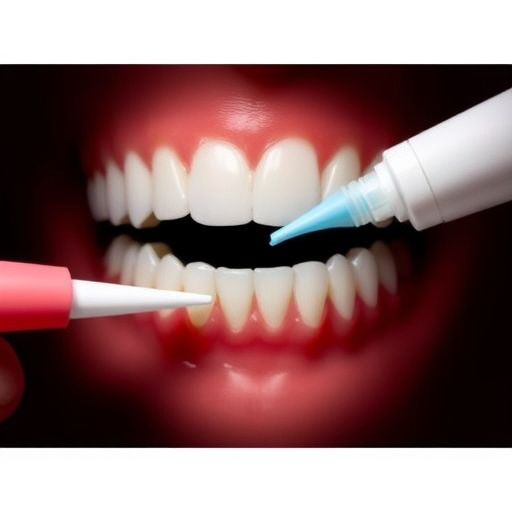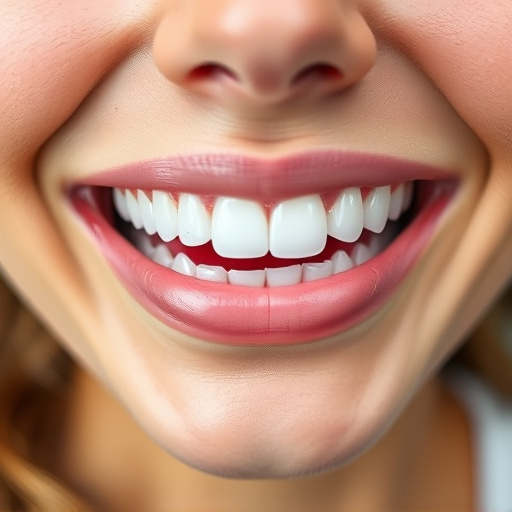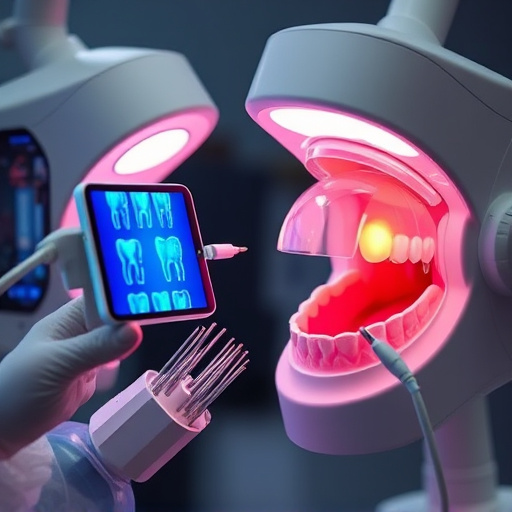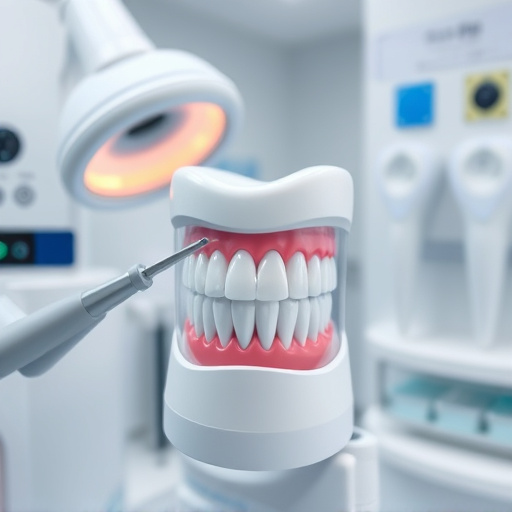TMJ disorder, affecting jaw movement and daily functions, requires comprehensive dental care. Splints and night guards are key tools for non-invasive symptom management, with options catering to individual needs and causes (bruxism or grinding). Regular check-ups and good oral hygiene habits also prevent TMJ issues, emphasizing the importance of professional guidance in choosing effective TMJ disorder treatment.
TMJ disorder treatment options have evolved to include targeted approaches like splints and night guards, offering relief from the debilitating pain and discomfort associated with this condition. These devices, carefully fitted to individual needs, provide crucial support for jaw joints under strain. This article delves into understanding TMJ disorder and its impact, exploring how splints and night guards play a pivotal role in effective treatment, and guiding you through selecting the best solution for your specific needs.
- Understanding TMJ Disorder and Its Impact
- The Role of Splints and Night Guards in Treatment
- Choosing the Right Splint or Night Guard for Your Needs
Understanding TMJ Disorder and Its Impact
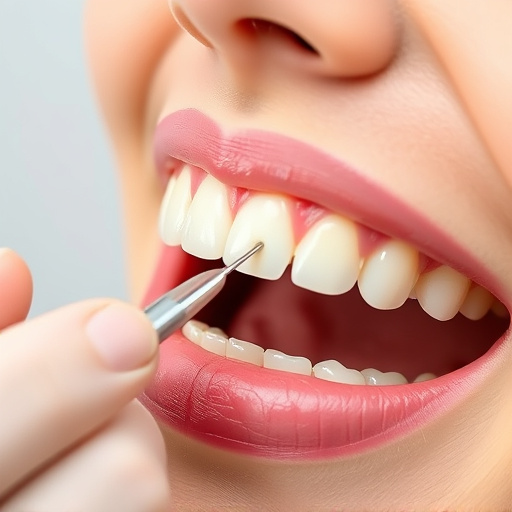
TMJ disorder treatment is essential for managing a condition that affects the temporomandibular joint (TMJ), the joint connecting your jawbone to your skull. This complex joint plays a crucial role in enabling jaw movement, making it vital for tasks like chewing, talking, and yawning. When something goes wrong, TMJ disorder can lead to severe pain and discomfort, impacting daily life and overall well-being. Symptoms range from mild to severe, including facial pain, clicking or popping sounds in the joint, difficulty opening or closing the mouth, and even headaches.
Comprehensive dental care is key to addressing TMJ disorder. Night guards, for instance, are custom-fitted appliances worn during sleep to prevent teeth grinding (bruxism), a common cause of TMJ problems. Splints, another form of TMJ disorder treatment, help alleviate pain by positioning the jaw in a comfortable and relaxed position. Preventive dentistry plays a significant role too, focusing on regular check-ups and maintenance to catch potential issues early before they escalate into more severe TMJ disorders. Even children’s dentistry can factor in, as establishing good oral hygiene habits from a young age may help prevent future TMJ complications.
The Role of Splints and Night Guards in Treatment
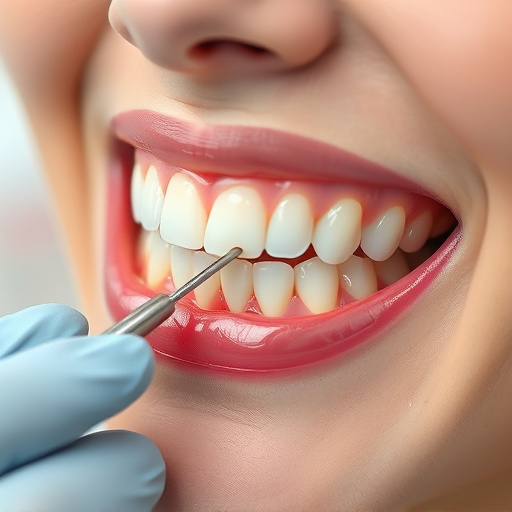
Splints and night guards play a significant role in TMJ disorder treatment. These devices are often recommended by dentists as a non-invasive approach to managing symptoms and promoting healing in the temporomandibular joint (TMJ). Splints, worn during the day or at night, help maintain proper jaw alignment and reduce strain on the joint, muscles, and teeth. By limiting jaw movement, splints can alleviate pain, clicking sounds, and difficulty opening or closing the mouth.
For children’s dentistry and family dentistry practices, offering splints as part of TMJ disorder treatment is a gentle and effective solution that aids in tooth repair without the need for more extensive procedures. Night guards, specifically designed to fit snugly over teeth, are particularly useful for patients who experience jaw discomfort during sleep. They prevent the upper and lower jaws from grinding against each other, thus minimizing damage to the TMJ and surrounding structures. This simple yet powerful tool in a patient’s arsenal can greatly improve their overall quality of life.
Choosing the Right Splint or Night Guard for Your Needs
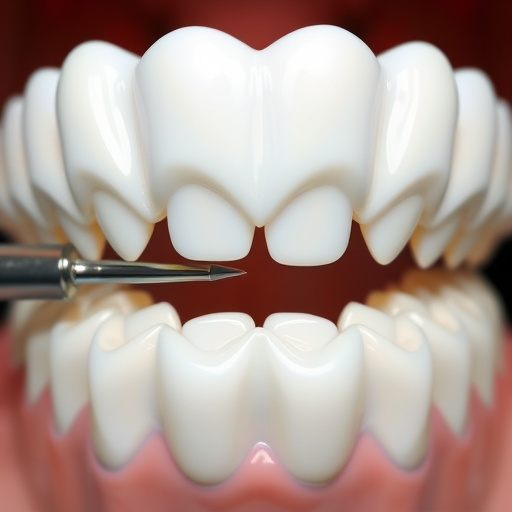
Selecting the appropriate splint or night guard is a significant step in managing TMJ disorder treatment effectively. These devices are tailored to individual needs and play a crucial role in alleviating symptoms like jaw pain, headaches, and popping sounds. When considering options, patients should consult with their dentist who can assess their specific condition and provide guidance.
The choice between a splint and a night guard often depends on the underlying cause of TMJ disorder. Splints, also known as occlusal splints or mouth guards, are commonly used for bruxism (teeth grinding) or to maintain jaw alignment. On the other hand, night guards are specifically designed to protect teeth during sleep and are often recommended for patients experiencing nighttime clenching or grinding. Factors like comfort, durability, and material choice should be taken into consideration, with options ranging from soft, flexible materials to harder, more durable variants, depending on individual preferences and dental recommendations.
TMJ disorder treatment options, such as splints and night guards, offer effective relief from jaw pain and associated symptoms. By understanding the condition’s impact and selecting the right protective gear, individuals can significantly improve their quality of life. This article has explored the role of splints and night guards in managing TMJ disorder, emphasizing the importance of personalized solutions for optimal results in TMJ disorder treatment.








